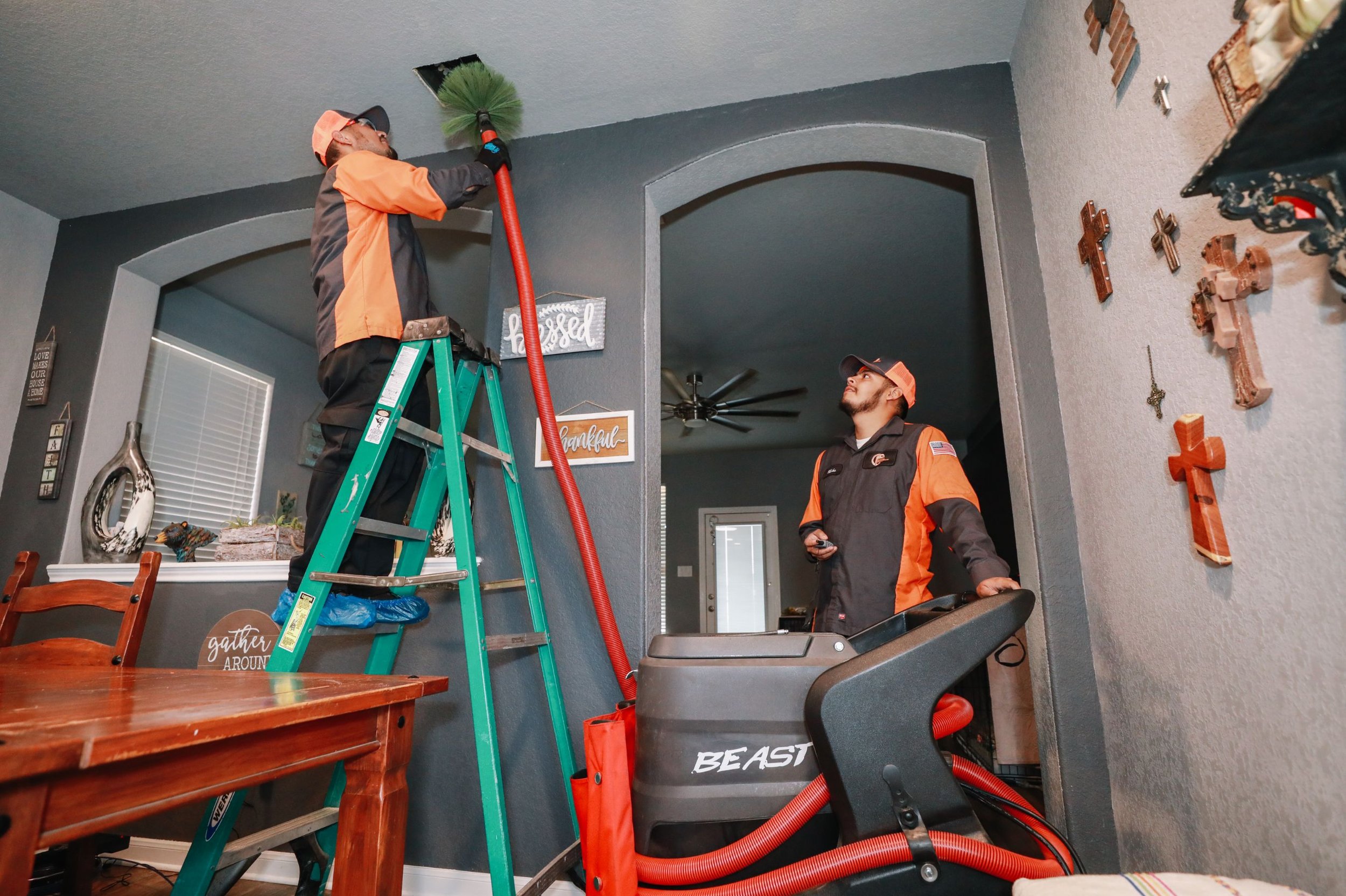Maintaining energy efficiency in homes is crucial for reducing utility bills and minimizing environmental impact. One often overlooked factor that significantly affects energy consumption is the condition of a home’s ductwork. Duct cleaning is vital in optimizing the performance of heating, ventilation, and air conditioning (HVAC) systems. We will explore how cleaning ducts can enhance energy efficiency, focusing on its benefits and the mechanisms behind these improvements.
Improved Airflow and System Performance
One of the primary ways duct cleaning by https://ohno.team/ contributes to energy efficiency is by improving airflow within the HVAC system. Over time, dust, debris, and other contaminants can accumulate in ductwork, creating blockages that restrict airflow. These obstructions force the HVAC system to work harder to maintain the desired temperature, increasing energy consumption. When ducts are cleaned, removing these obstructions allows air to flow more freely, reducing the strain on the system. This enhanced airflow enables the HVAC system to operate more efficiently, consuming less energy to achieve the same comfort level. As a result, homeowners experience lower energy bills and a more consistent indoor climate.
Reduction in Energy Consumption
Dirty ducts can have a significant impact on the energy efficiency of a home. When ducts are clogged with dust and debris, the HVAC system must exert more effort to push air through the system. This increased workload leads to higher energy consumption as the system runs longer and harder to reach the desired temperature. By investing in regular duct cleaning, homeowners can prevent these issues. A clean duct system requires less energy, as the HVAC system can distribute air more efficiently throughout the home. This reduction in energy consumption not only lowers utility costs but also decreases the overall environmental footprint of the household.
Enhanced Indoor Air Quality
Duct cleaning also plays a crucial role in improving indoor air quality, indirectly contributing to energy efficiency. Contaminants such as dust, mold, and allergens that accumulate in ductwork can be dispersed throughout the home when the HVAC system is in use. These airborne particles can affect respiratory health and overall comfort. By cleaning the ducts, these pollutants are removed, leading to cleaner air in the home. Improved air quality can result in a more comfortable living environment, reducing the need for excessive heating or cooling. This, in turn, helps maintain energy efficiency as the HVAC system does not need to work harder to compensate for poor air quality.
Prevention of System Overworking
Regular duct cleaning helps prevent the HVAC system from overworking, crucial for maintaining energy efficiency. When ducts are clogged or obstructed, the system must exert additional effort to push air through the restricted pathways. This overworking can lead to premature wear and tear on the system, resulting in more frequent repairs and replacements. A well-maintained duct system ensures that the HVAC unit operates within its designed capacity, reducing the risk of breakdowns and extending the lifespan of the equipment. Duct cleaning contributes to energy efficiency and lowers long-term maintenance costs by minimizing the strain on the system.
Optimizing Temperature Regulation
Proper duct cleaning also aids in optimizing temperature regulation throughout the home. When ducts are dirty, air distribution can become uneven, leading to hot or cold spots in different areas of the house. These temperature imbalances can cause homeowners to adjust their thermostat settings more frequently, which increases energy consumption. Ensuring that ducts are clean allows air to be distributed more evenly, resulting in a more consistent indoor temperature. This consistency reduces the need for constant thermostat adjustments and helps maintain energy efficiency, as the HVAC system does not need to work as hard to correct temperature imbalances.
Enhanced HVAC System Longevity
In addition to improving efficiency and lowering energy costs, duct cleaning contributes to the longevity of HVAC systems. When ducts are clogged with debris, the increased strain on the system can lead to accelerated wear and tear on components such as fans, motors, and coils. This added stress can result in more frequent breakdowns and a shortened lifespan for the HVAC equipment. Regular duct cleaning helps mitigate these issues by ensuring that air flows freely and the system operates within its intended parameters. With less strain on the system, components remain in better condition for longer, reducing the need for repairs and replacements. This proactive maintenance approach not only improves energy efficiency but also provides long-term cost savings by extending the operational life of the HVAC system.
Duct cleaning significantly enhances energy efficiency in homes by improving airflow, reducing energy consumption, and maintaining indoor air quality. Homeowners can enjoy a more efficient HVAC system that operates with less strain and lower energy costs by ensuring that ductwork remains free from obstructions and contaminants. Regular maintenance of ducts not only contributes to a more comfortable living environment but also helps extend the lifespan of HVAC equipment. Investing in professional duct cleaning services is a practical step towards achieving optimal energy efficiency and reducing the overall environmental impact of household energy use.
Keep an eye for more latest news & updates on Vents Fashion!

